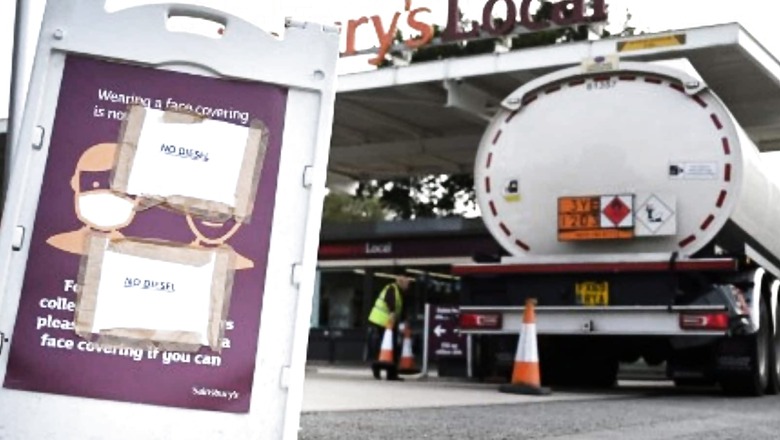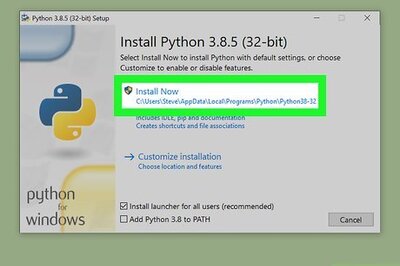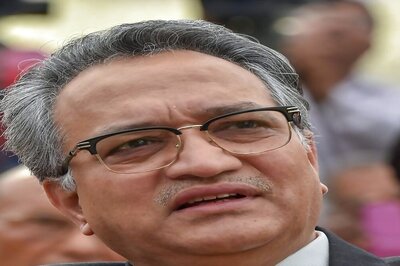
views
The British government has put the military on standby to address a supply chain crisis which has led fuel pumps to run dry amid panic-buying by motorists.
The move to mobilise the army comes after a widespread shortage of truck drivers, which has led to serious supply problems for retailers and restaurants in the past few months, has meant plentiful stocks of fuel have not reached filling stations.
A warning of fuel supply shortages at the end of last week has led to panic buying, with long lines of cars waiting for hours to fill up, and resulted in pumps in cities across Britain running dry.
The government had already announced plans to issue temporary visas for 5,000 foreign truck drivers, suspend competition laws and entice former drivers back into the industry as part of measures to deal with the labour shortage.
Here’s a look at how the crisis is unfolding:
The crisis
In recent months, many companies have reported shortages, including fast-food chains KFC, McDonalds and Nandos. Supermarket shelves have also run dry.
At first, the shortages werent considered big enough that would shake an economy or a government. But last week when oil giants BP and ExxonMobil announced that they were being forced to close some gas stations as a result of a truck driver shortage quickly changed that.
The shortage
Britain has been gripped by a rush of panic-buying for almost a week after oil companies warned they did not have enough tanker drivers to move petrol and diesel from refineries to filling stations.
A shortage of around 100,000 drivers has sown chaos through supply chains and raised the spectre of empty shelves and price increases at Christmas.
Business minister Kwasi Kwarteng said 150 soldiers had been mobilised, and would be driving tankers within a few days.
Industry groups said the worst of the shortages seemed to be in London, the southeast and other English cities. Fights have broken out as drivers jostled.
The Petrol Retailers Association (PRA), which represents independent retailers who account for about two-thirds of all the 8,380 UK filling stations, said on Tuesday 37% its members’ stations were out of fuel.
The shortages have added to an air of chaos in the world’s fifth-largest economy, leaving gaps on supermarket shelves. A spike in European wholesale natural gas prices has also tipped energy companies into bankruptcy.
Brexit to blame?
The pro-Brexit Conservative government is keen to downplay talk that the truck driver shortage is a result of Britain’s departure from the European Union.
Britain left the EU single market at the start of this year, preventing hauliers from recruiting drivers in the bloc. To tackle the shortage, the government has said it will issue temporary visas to 5,000 foreign drivers, a measure it had previously ruled out.
Critics say Prime Minister Boris Johnson is also to blame for failing to address the issue of a lack of truckers he has been warned for months that there is a shortage of around 100,000 drivers across the trucking sector overall.
Other factors
The coronavirus pandemic has also exacerbated the staffing issues, prompting thousands of EU drivers to leave the U.K. The series of lockdown restrictions also led to difficulties in training and testing new home-grown drivers to replace those who left.
In addition, the pandemic accelerated the number of British drivers, many of whom were nearing retirement age, calling it a day. Relatively low pay, changes in the way truck drivers’ incomes are taxed and a paucity of facilities toilets and showers, for example have also diminished the job’s appeal to younger workers.
(With agencies)
Read all the Latest News , Breaking News and IPL 2022 Live Updates here.



















Comments
0 comment